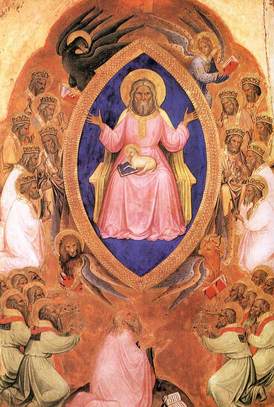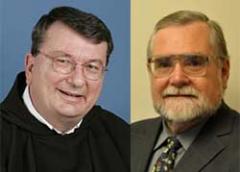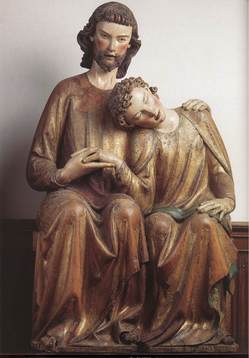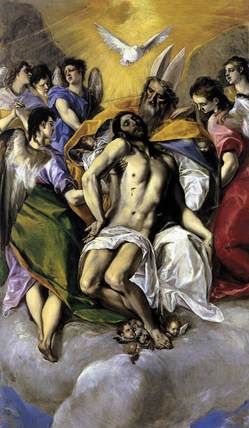Almost two weeks ago Pope Benedict sent a message to the president of the Italian Bishops’ Conference, Angelo Cardinal Bagnasco, who is chairing a meeting where the agenda is talking about God, of all things. Well, it beats talking about bishops, nuns and the environment all the time. This topic interests me not in the sense of mere curiosity but because it is taking seriously my seeking the face of God (this topic ought to concern all people who consider themselves Catholic, spiritual and/or religious). To say God interests me sounds like an academic exercise; it is and it is not entirely that. God is interesting to me because seeking God is like no other search I know of, for it concerns my entire self and it intersects all that I do in the world. Is God totally unknowable, the Mystery and desirous of a personal relationship with me (and you)? The Pope makes some great points in these few paragraphs. The curious points are emphasized below.
On the occasion of the Congress “God Today: With or
Without Him Everything Changes,” which is taking place in Rome from
December 10-12, I wish to express to you, venerated Brother, to the Italian
Episcopal Conference and, in particular, to the Committee for the Cultural
Project, my profound appreciation for this important initiative, which
addresses one of the great topics that has always fascinated and questioned the
human spirit.
The question of God is also central in our time, in which man is
often reduced to one dimension, the “horizontal,” considering
openness to the Transcendent as irrelevant for his life. The relationship with
God, instead, is essential for humanity’s journey and, as I have had the
occasion to affirm many times, the Church and every Christian, in fact, have
the task to make God present in this world, to attempt to open to men access to
God.
Planned from this perspective is the international event of these days.
The breadth of the approach to the important topic that characterizes the
meeting, will make possible the sketching of a rich and articulated picture of
the question of God, but above all it will be a stimulation for a profound
reflection on God’s place in the culture and life of our time.
On one hand, in
fact, an attempt is being made to show the different ways that lead to
affirming the truth about the existence of God, that God which humanity has
always known in some way, even in the chiaroscuro of his history, and who
revealed himself with the splendor of his face in the covenant with the people
of Israel and, beyond that, in every measure and hope, in a full and definitive
way, in Jesus Christ.
He is the Son of God, the Living who enters into the life
and history of man to illumine him with his grace, with his presence. On the
other hand, the desire is precisely to bring to light the essential importance
that God has for us, for our personal and social life, for understanding
ourselves and the world, for the hope that illumines our way, for the salvation
that awaits us beyond death.
Directed to these objectives are the numerous
interventions, according to the many points of view which will be the object of
study and exchange: from philosophical and theological reflection on the
witness of the great religions; from the impulse to God, which finds its
expression in music, literature, the figurative arts, the cinema and
television; to the development of the sciences, which attempt to read in depth
the mechanisms of nature, fruit of the intelligent work of God the Creator; from
the analysis of the personal experience of God to the consideration of the
social and political dynamics of an already globalized world.
In a cultural and
spiritual situation such as the one we are living in, where the tendency grows
to relegate God to the private sphere, to consider him irrelevant and
superfluous, or to reject him explicitly, it is my heartfelt hope that this
event might at least contribute to disperse that semi-darkness that makes
openness to God precarious and fearful for the men of our time, though he never
ceases to knock on our door.
The experiences of the past, although not remote
to us, teach us that when God disappears from man’s horizon, humanity loses its
direction and runs the risk of taking steps to its own destruction. Faith in
God opens man to the horizon of certain hope, which does not disappoint; it
indicates a solid foundation on which to base life without fear; it calls for
abandoning oneself with confidence in the hands of the Love which sustains the
world.
To you, cardinal, to all those who have contributed to prepare this
congress, to the speakers and to all the participants I express my cordial
greeting with the desire for the full success of the initiative. I support the
works with prayer and with my apostolic blessing, propitiator of that light
from on High, which makes us capable of finding God, our treasure and our hope.



